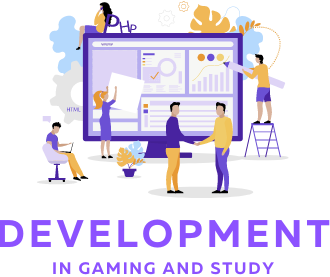Sports have long been a cornerstone of human culture, serving as a powerful unifying force that transcends borders, languages, and ideologies. From the ancient Olympic Games in Greece to the modern spectacles of the FIFA World Cup and the Super Bowl, sports captivate millions, offering not just entertainment, but also a platform for social change and personal growth. This article explores the multifaceted world of sports, examining its impact on society, the economy, and the individual.
The Role of Sports in Society
Building Community and Identity
Sports play a crucial role in building community and fostering a sense of identity. Local teams often become symbols of regional pride, uniting diverse groups under a common banner. Events like the Olympics or the World Cup provide a stage for national pride, where citizens rally behind their country’s athletes, celebrating victories and mourning losses together.
Social Integration and Inclusion
Sports can be a powerful tool for social integration, breaking down barriers and promoting inclusion. Programs like Special Olympics and Paralympic Games highlight the abilities of athletes with disabilities, challenging societal prejudices and encouraging greater acceptance. Similarly, grassroots sports initiatives in underserved communities help at-risk youth find purpose and camaraderie, steering them away from negative influences.
Economic Impact of Sports
Job Creation and Revenue Generation
The sports industry is a significant economic driver, creating jobs and generating substantial revenue. Major sporting events boost local economies through tourism, hospitality, and merchandising. For instance, the 2018 FIFA World Cup in Russia contributed an estimated $14 billion to the national economy. Additionally, sports franchises themselves are multi-billion-dollar enterprises, providing employment opportunities from athletes to administrative staff.
Investment in Infrastructure
Hosting major sporting events often leads to significant investments in infrastructure. Cities bidding for events like the Olympics or World Cup typically undertake extensive projects to build or upgrade stadiums, transportation networks, and accommodation facilities. While these investments can be costly, they often leave a lasting legacy that benefits local communities long after the events have concluded.
Personal Growth and Development Through Sports
Physical and Mental Health Benefits
Engaging in sports offers numerous physical and mental health benefits. Regular physical activity helps prevent chronic diseases such as obesity, diabetes, and cardiovascular conditions. Additionally, sports participation is linked to improved mental health, reducing symptoms of depression and anxiety while enhancing overall well-being. The discipline and routine associated with sports also promote better sleep patterns and stress management.
Life Skills and Personal Development
Sports teach valuable life skills that extend beyond the playing field. Athletes learn discipline, teamwork, leadership, and perseverance—qualities berita terupdate sepabola that are transferable to other areas of life, including education and career. The challenges faced in sports, from rigorous training to competition pressure, help individuals develop resilience and a growth mindset, preparing them for the ups and downs of life.
The Future of Sports
Technological Advancements
The future of sports will be heavily influenced by technological advancements. Innovations such as wearable technology, virtual reality, and artificial intelligence are already transforming how athletes train, how games are played, and how fans engage with sports. These technologies promise to enhance performance, improve safety, and provide immersive experiences for fans.
Globalization and Accessibility
As globalization continues, sports will become even more accessible to a global audience. The rise of digital media platforms allows fans to watch events in real-time, regardless of their location. This increased accessibility will further popularize sports worldwide, creating new markets and opportunities for growth. Additionally, efforts to promote gender equality and inclusivity in sports will pave the way for more diverse participation and representation.
Conclusion
Sports are more than just games; they are a reflection of society, a catalyst for economic growth, and a platform for personal development. As the world continues to evolve, so too will the role of sports, adapting to new challenges and opportunities. Whether on a local, national, or global scale, the power of sports to unite, inspire, and transform is undeniable. Embracing the positive impact of sports can lead to healthier, more inclusive, and prosperous communities worldwid
